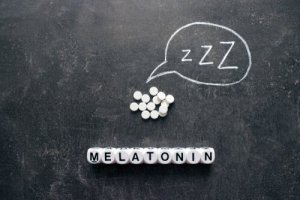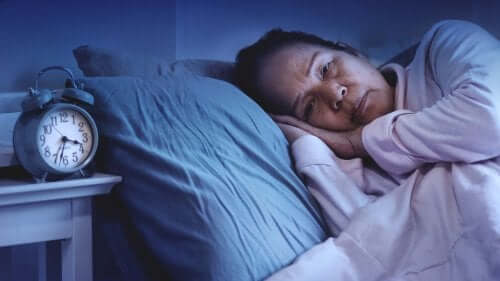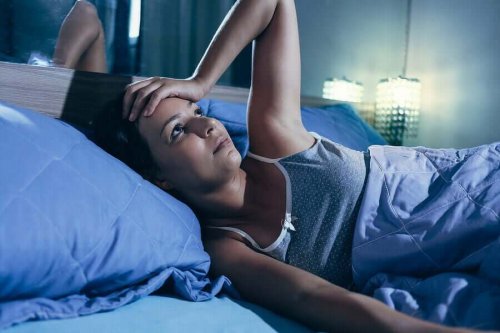All About Hypnotics or Sleeping Pills

Nowadays, due to the lifestyle people lead in developed countries, many have trouble falling asleep and need hypnotics or sleeping pills.
Also known as hypnotic drugs, they’re highly sought after these days. However, you must be careful not to abuse them, as they may have negative repercussions for your health. Throughout this article, we’ll look at the different sleep problems that exist, as well as the range of sleeping pills you can find on the market.
What’s insomnia?

This very common disease in developed countries is a sleep disorder characterized by a patient’s inability to fall or stay asleep to get enough quality sleep to restore their energy and normal waking state.
The results of numerous studies on this disease suggest that its cause is another underlying disorder rather than insomnia itself. This is important, as it guides treatment toward the disease that triggers this sleep problem.
Moreover, insomnia can be classified according to its duration and nature:
- Transient. If it lasts less than seven days, as can happen to some women during the premenstrual period.
- Acute. This type stretches from one to three weeks.
- Chronic. People who’ve had insomnia for more than three weeks.
Focusing on its nature, insomnia is classified as:
- Sleep-onset – if the patient has difficulty falling asleep.
- Sleep-maintenance insomnia – if the patient has a hard time staying asleep.
- Early morning awakening
- General
Hypnotics or sleeping pills and improving sleep quality
These drugs are psychoactive psychotropic substances that promote sleep onset, causing drowsiness. There are six lines of treatment for insomnia. The medical professional will begin with the first and move on to the next if it isn’t effective.
1st line. Natural substances
People widely use natural substances to fight this problem. Specifically, the most popular are valerian, linden, passionflower, and opioids. Other patients resort to other therapies, such as homeopathy and “natural” products.
2nd line. Non-benzodiazepine sleep aids

These drugs are proving to yield good results due to their efficacy and tolerance. Because of this, they’re becoming first-choice sleeping pills, especially in the treatment of acute insomnia. However, they’re not as effective for chronic insomnia.
3rd line. Benzodiazepines
Benzodiazepines are other widely-used sleeping pills to treat insomnia. Unlike the above, they’re not selective of the GABA complex.
They’ve replaced other drugs (barbiturates) as first choice hypnotics. Despite being very effective, they alter the natural structure of sleep, altering REM sleep and causing significant side effects.
Furthermore, these drugs also cause tolerance and dependence. Thus, their use must be controlled and patients should be well informed.
You may also want to read: Risks and Side Effects of Sleeping Pills
4th line. Antidepressants with sleep-promoting effects
For some time, people have used some antidepressant drugs, such as the ones we’ll mention below, as sleeping pills.
- Mirtazapine
- Trazodone
- Amitriptyline
As with benzodiazepines, these drugs also disrupt REM sleep. However, they do so with a different mechanism of action. These drugs cause a soporific effect due to their anticholinergic action, as well as improving aminergic neurotransmission.
Often, when a patient suffers from chronic insomnia, benzodiazepines aren’t enough. Thus, they must take these drugs as adjunctive therapy.
Discover: Eight Aromatic Oils to Help You Sleep Better
5th line. Antipsychotics to treat insomnia

When all the above medications don’t exert the desired effect, the use of antipsychotics or neuroleptics may prove effective.
Some of the most commonly used for this condition are:
- Haloperidol
- Quetiapine
- Clozapine
They’re commonly used in elderly patients, those with delirium, patients with manias, patients who are suffering from insomnia, or those who are psychotic.
Finally, we should mention that the last line of treatment, the 6th line, is comprised of other medications such as antihistamines, melatonin, or gabapentin, which are usually used in mild insomnia, like the type that’s produced by jet lag when you travel to countries in a different time zone.
Conclusion
Nowadays, there’s a wide range of hypnotics or sleeping pills that help fight insomnia. Consult your doctor about the most appropriate drugs for your case and always follow their recommendations.
All cited sources were thoroughly reviewed by our team to ensure their quality, reliability, currency, and validity. The bibliography of this article was considered reliable and of academic or scientific accuracy.
- Sofía, M., Rivas, G., & Diego, J. (2017). En busqueda del hipnótico ideal : Archivos Venezolanos de Farmacología y Terapéutica.
- Mendoza, E., Lamas, J., & Capafons, A. (2010). Hipnosis Clínica. Focad.
- Brink, C. J. (2010). Fenobarbital. Tijdschrift Voor Diergeneeskunde. https://doi.org/10.1007/978-90-313-9129-5_50
This text is provided for informational purposes only and does not replace consultation with a professional. If in doubt, consult your specialist.








